A back-end developer is someone who is responsible for the back-end (the back) of a website, application, or program. These developers are often specialized in a certain programming language or a specific framework: there are PHP developers, for example. NET developers, C # developers, Java developers, etc.
The back-end of an application is the part that is not visible to the user. This often takes the form of a dashboard, in which administrators can, for example, make changes and add new data. The back-end part of an application supports the front-end (what the user actually sees) and usually allows the front-end to communicate with other programs and applications. The back-end environment uses a login system, often with different (access) rights for different administrators.
In general, the back-end consists of three parts: the database, the server, and the application. The application receives data from the front end and stores it in a database: a large collection of data that runs on a server. The data can be retrieved by the application from this server at later times.
Examples of processes that take place in the back-end are registering new users, uploading files, and reading news messages from a database. Back-end development covers a very broad area: from the implementation of payment methods in a webshop to the operation of a complete management system.
Commonly used programming languages for the back-end are for example:
To make working with these languages easier, many websites use a CMS (content management system). This allows you to make adjustments to the content of a page even without extensive knowledge of programming. Well-known examples of CMSs are:
In addition, the so-called framework is distinguished: this is a framework within which code is written on the basis of certain guidelines, which are dictated by the tools to be used within the framework.

Projects Completed

Mobile Apps Developed

Global Clients

Worldwide Offices

Employees

Years of Experience
WebSenor is a global tech company headquartered in New York with development hubs in Udaipur and Bangalore. With 12+ years of experience, 120+ experts, and 3500+ projects delivered, we specialize in AI-powered web, software, mobile, product, and enterprise solutions, along with digital marketing — making us a trusted leader in the IT industry.
Get the latest trends, case studies, and AI strategies in your inbox.
Copyright © 2026
WebSenor,
All Rights Reserved.